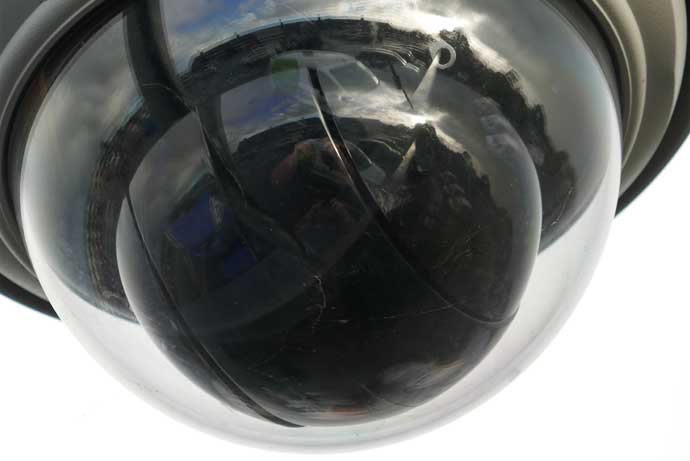There are cultures in which a request for a business card is met with "I don't do that any more. Look for me on LinkedIn." People who would otherwise have the word "innovation" on their business card tend to do that. No doubt at least one of them is working on an app whereby two people can exchange LinkedIn details by bumping their smartphones together. Remember Digimon? Putting two together for a battle? And there are cultures in which a business card is a personal representation to be respected: presented and received with both hands; held in both hands, read and understood before being stored away.
Now there's a culture in which a business card is a thing to be critiqued. Yes, I agree that it would be a good idea to have the Facebook logo on my business card. But I don't have the Facebook logo on my business card. Not that I'm bothered by the uniformity of it all, and I suppose the Facebook logo is now one of the minimum necessary components, like a physical address used to be. But you can guess, can't you, that I'm on Facebook**? In a way that you can't guess that I'm at [insert physical address here]?
You might look at my business card and think: gosh, he's not on Facebook. Or you might not. You might look at my business card and think: what an odd business card! Or you might look at my business card and think: okay, these are the ways he's happy to be contacted (and I wonder if he's on Facebook). Given that it's proverbially revealing for a prospective employer to look at a young applicant's social-media history, you might take the usual logos as a given. Or wonder if I'm hiding something - and go find it.
A while ago, I carried around a business card with nothing on it. Thick, white card - offcuts (I suspect they cut them off specially for me) bought from a small (now deceased) shop in Bath with copious wedding invitations in the windows. I'd write in my name and whatever I was doing that day - phone number, maybe the organisation hiring me to be wherever I was. But that got to be so achingly pretentious after a while that I gave it up. Now I just have pretentious very small shopping lists. Soon, I suppose, I'll have very small shopping lists with everything on them except the Facebook logo.
Strange sky this morning. Very dark clouds bulking over the horizon behind the castle, and a haze that is beginning to be rain coming in from the other side. A moment ago, the light went very bright, as the sun sometimes does when it's sharing the sky with the promise of rain, and I completely lost my train of thought. I have a business card with my phone number on it, and a website address. Does that make me stand out from the crowd? Ironic if it did.
*Cards of Identity, Nigel Dennis, novel published in 1955 by Weidenfeld & Nicholson. The friend who recommended it also liked Lady into Fox, David Garnett, 1922, Chatto & Windus. Distinctive novels about identity, both interesting.
**We'll pretend to ignore, for the sake of this conversation, the logos in the top right-hand corner of this page. They came as standard.

Final thought (from me) on all of this. In a conversation about #metoo recently, a woman I know said "It was never okay" and "Women have had enough", quoting from an interview she'd seen, and I said something about communications technology changing the nature of the beast. We talked about that picture of the American senator smirking as he reaches out to hold a sleeping woman's breasts - the woman a journalist, dressed in a flak jacket and helmet, the setting a US military aircraft flying from a danger zone - and it struck me: whatever else this is, it's an invitation to grow up. A final, exasperated, lost-patience plea. Grow up.
But we can't do this angry. We can't do this as a discussion between one half of the population and itself. A woman also said to me recently, "You can't get any sense out of a man when he's got a - " and I thought: timing? Then I thought: we treat each other so badly. And we get so angry. There are always sides, and factions, and even in the resolution, once the perpetrators have been sent down, we're still falling out with each other. On to the next outrage.
To steal a line attributed to Gandhi, I think Western Civilisation would be a good idea. But gentleness, on all sides, would be a better one.





